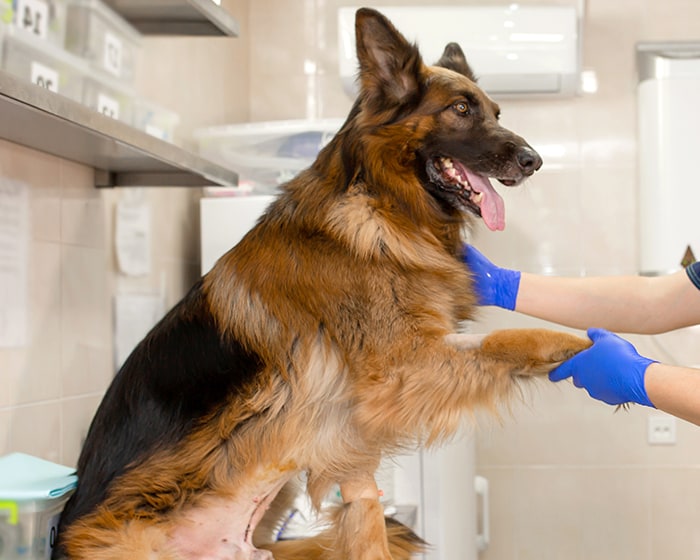Veterinary Diagnostic Lab
For diagnostic imaging, we use electromagnetic radiation and other technologies. This enables us to create detailed images of your pet's internal structures.
At Yolinda Animal Hospital we have advanced tools to help diagnose your pet's medical issues and can quickly produce accurate diagnostic information about your pet's condition.
Thanks to diagnostic imaging, we can provide immediate treatment options.

In-House Lab & Online Pharmacy
At our in-house lab, we perform tests and get results fast so that we can diagnose your pet's symptoms and begin treatment as soon as possible.
We stock a variety of prescription diets and medications at our clinic and online pharmacy. This allows us quick access to any medications your pet may need while in our care.

Our Diagnostic Services
We offer advanced diagnostic testing through our in-house and outside veterinary diagnostics labs. This allows our vets to provide an accurate diagnosis of your pet's medical issues.
- Radiography (Digital X-rays)
We can examine your pet's internal systems with a radiograph (digital x-ray). This reveals information that may be invisible from the outside.
Radiography is a non-invasive, painless procedure. It only employs very low doses of radiation. Because the radiation exposure is so low, even pregnant and very young pets can have this procedure.
Radiographs are used to assess bones and organs. They can reveal broken bones, chronic arthritis, bladder stones, spinal cord diseases, and some tumors. - Bloodwork
We perform in-house and outside lab work to determine your pet's health and diagnose illness.
Some common veterinary blood tests include CBC (complete blood count), white blood count, hemoglobin and MCHC, hematocrit, platelets, eosinophils, and blood serum profiles. - Urinalysis
Urinalysis is a critical diagnostic test. It gives your vet important information about the physical and chemical properties of your pet's urine.
Urinalysis is primarily used to test the health of your pet's kidneys and urinary tract system. It can also be useful in detecting problems in other organ systems and is critical in diagnosing metabolic diseases such as diabetes.
This is an important diagnostic test for both healthy and sick animals. It should be included in any comprehensive assessment of your pet's health. - Fecal Exams
A fecal exam is a microscopic examination of your pet's feces. The goal of fecal exams is to detect and treat GI infections that threaten your pet. Fecal exams enable your vet to determine whether your pet has intestinal parasites like roundworms or hookworms.
Parasites cause discomfort and irritability in pets and lead to more serious conditions. Some are even transmissible to humans.
These parasites are often hidden from view. This is because they live in your pet's gastrointestinal tract. A fecal exam is the only way to detect them.
Annual fecal examinations should be a part of every pet's routine wellness examination.

